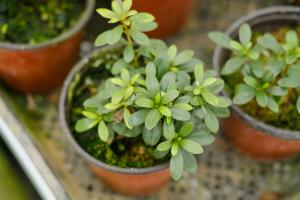When to Plant a Fig Tree in NJ
If you live in New Jersey and are considering planting a fig tree, it’s important to know the best time to do so. Figs are native to the Mediterranean, but they can grow well in NJ’s climate as long as they are planted at the right time of year. In this article, we’ll discuss when to plant a fig tree in NJ and some tips for ensuring the tree thrives.
Planting in the Spring
The best time to plant a fig tree in NJ is in the spring, ideally in April or May. This is when the ground has thawed and temperatures have begun to warm up. It’s important to wait until the threat of frost has passed before planting the tree, as fig trees are not frost-tolerant. By planting in the spring, the tree has a full growing season ahead of it to establish its roots and grow.
Planting in the Fall
While spring is the ideal time to plant a fig tree in NJ, it’s possible to plant in the fall as well. Late September and early October are good months for fall planting, as the ground is still warm from the summer and there is still ample time for the tree to establish its roots before winter. However, planting in the fall does come with some additional risks. If the winter is exceptionally cold, the tree may not survive. Additionally, fall planting may not give the tree enough time to develop significant growth before the winter dormancy period.
Tips for Planting a Fig Tree in NJ
When planting a fig tree in NJ, there are a few tips to keep in mind:
Choose a sunny location. Fig trees need plenty of sun to thrive, so select a planting spot that gets at least 6 hours of direct sunlight each day.
Plant in well-draining soil. Like most trees, figs prefer soil that is well-draining and not too compacted. Amend the soil with compost or other organic matter to improve drainage.
Water regularly. Figs need regular watering, especially during their first few years of growth. Give the tree enough water to keep the soil moist but not waterlogged.
Protect from winter cold. If you’re planting in the fall, take steps to protect the tree from winter cold. You can wrap the trunk with burlap or other protective material, or use other methods like mulching to keep the tree warm.
Prune annually. Fig trees require annual pruning to keep them healthy and encourage fruit production. Prune in late winter or early spring before new growth appears.
Conclusion
Planting a fig tree in NJ can be a rewarding experience, but it’s important to choose the right time of year to do so. Spring is the ideal planting time, but fall can work as well with certain precautions. Remember to choose a sunny spot, plant in well-draining soil, water regularly, protect from winter cold, and prune annually. By following these tips, your fig tree will thrive and produce delicious fruit for years to come.

 how many times do yo...
how many times do yo... how many planted tre...
how many planted tre... how many pine trees ...
how many pine trees ... how many pecan trees...
how many pecan trees... how many plants comp...
how many plants comp... how many plants can ...
how many plants can ... how many plants and ...
how many plants and ... how many pepper plan...
how many pepper plan...































